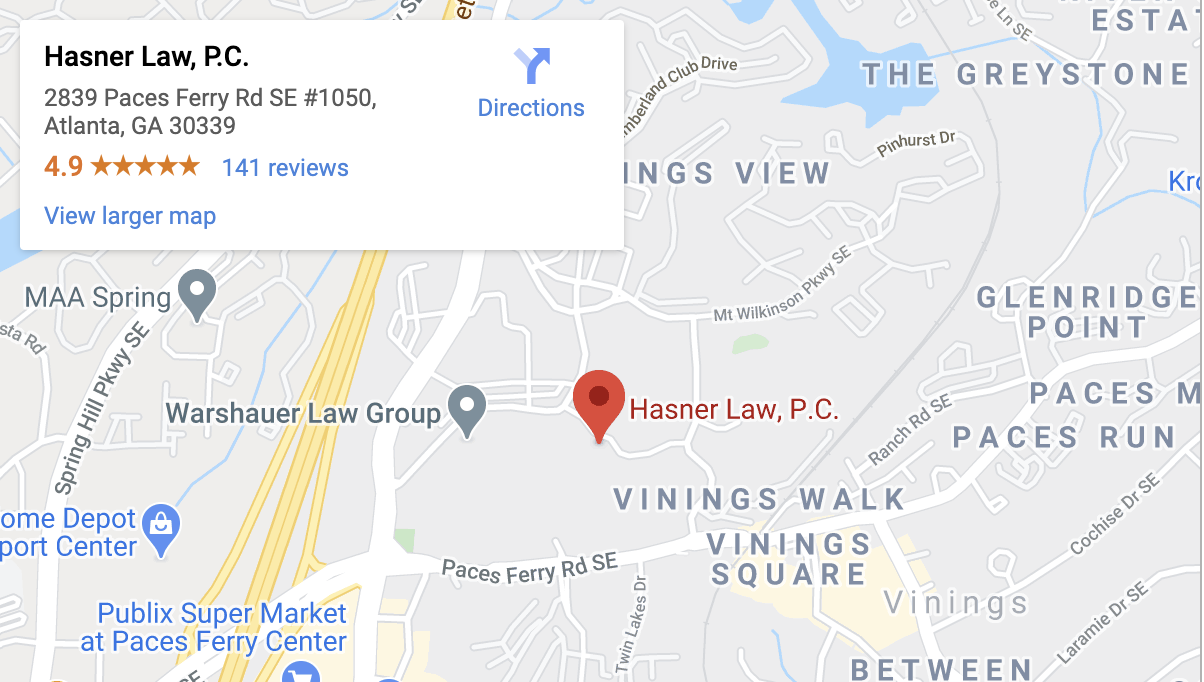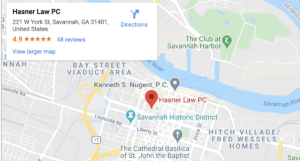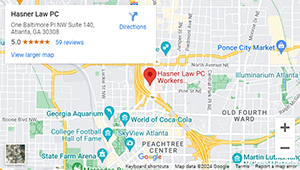Talc Lawsuits

Since 2013, Johnson & Johnson and other manufacturers of talcum powder products have faced a series of product liability lawsuits. These cases center on a connection between talc and ovarian cancer.
The legal proceedings have seen some traction. Johnson & Johnson was found liable in several cases and ordered to pay several billion dollars in damages to cancer victims. But the company has sought to use bankruptcy to stall further lawsuits, and the tactic has worked temporarily.
Here’s an overview of the active talc lawsuits in the U.S. and your options for seeking compensation for talc-related diseases. Contact our Atlanta product liability attorneys for legal assistance today. We offer free consultation.
How Our Atlanta Product Liability Lawyers Can Help With a Talc Lawsuit

Hasner Law Injury & Workers’ Compensation Attorneys helps Georgia accident victims fight for fair injury compensation. The firm’s Atlanta personal injury attorneys have over 80 years of combined experience fighting against billion-dollar insurers and corporations.
The lawyers at Hasner Law Injury & Workers’ Compensation Attorneys have earned many honors and recognitions, including the Elite Lawyer Award from EliteLawyer.com and a Superb rating from Avvo for legal background and experience.
If you hire our Atlanta product liability attorneys for help with a talc lawsuit, we’ll:
- Collect evidence and consult leading industry experts as we build your case
- Value the full extent of your losses, including future damages
- Negotiate with insurance companies and corporate defendants on your behalf while you focus on your health
- Advocate for you in court if we fail to agree to a fair out-of-court settlement
If a defective product has injured you, you need legal aid that offers the personal attention of a small firm with the knowledge and resources of a large one. Contact Hasner Law Injury & Workers’ Compensation Attorneys for a free consultation to discuss what our law firm can do for you.
How Common Are Talc Lawsuits?
Johnson & Johnson was facing thousands of lawsuits over talc injuries when it finally stopped sales of its talcum powder products. Forbes magazine has tallied over 38,000 talc lawsuits in the U.S. as of 2022. People allegedly harmed by these products have filed lawsuits in all 50 states.
These figures raise the question of how often talc causes cancer. In a 1971 study, doctors found a strong link between talc and ovarian tumors. According to their research, 75% of ovarian tumors had talc particles embedded in them.
Combining these two data points, people who developed ovarian tumors were highly likely to have used products containing talc on their genital area. And tens of thousands of these individuals have now filed lawsuits against Johnson & Johnson seeking compensation.
Overview of Talc Lawsuits
Talc lawsuits allege a common fact pattern: people who used products containing talc on their genital area later developed ovarian cancer. The lawsuits allege that talc particles migrated into their bodies and embedded in the ovaries and that tumors later grew around the embedded particles.
The Causal Link Between Talc and Cancer
Physicians don’t know exactly how talc causes cancer, but the prevailing theory is that talc becomes contaminated with asbestos fibers during the mining process.
Asbestos fibers have a known connection to genetic mutations. Asbestos doesn’t break down in the body, so any fibers that are ingested or inhaled can embed themselves in the body’s soft tissues. There, they can produce scarring and inflammation.
Carcinogens like asbestos can also cause cells to mutate. In some cases, these mutated cells can begin replicating uncontrollably, eventually forming tumors.
Notably, scientific studies pointed to a link between talc and cancer as early as 1971. The lawsuits allege that Johnson & Johnson knew or should have known about these studies.
The Theory of Liability for Talc-Related Diseases
Product liability lawsuits must allege a defect in the product that made it unsafe. But if you can establish the existence of a defect, the law imposes strict liability for any losses you suffered.
Strict liability means you don’t need to prove that the manufacturer knew or suspected the existence of the defect. However, even if strict liability doesn’t apply, you can proceed with a theory of negligence, meaning you must prove a breach of duty.
The law recognizes three types of defects in product liability cases:
Design Defect
A product has a design defect if it has no safe use. To allege a design defect in the talc lawsuits, you would need to prove that talc has no safe use because it’s always contaminated with asbestos.
Manufacturing Defect
A product has a manufacturing defect if it wasn’t manufactured according to the safe design specifications.
In a talc lawsuit, you could allege a manufacturing defect if you can prove that talc can be purified by removing the asbestos, but the manufacturers failed to implement the procedure for doing so.
Marketing Defect/Failure To Warn
A marketing defect exists if a product has a safe use, but the label doesn’t explain it. A warning defect can also exist if a label fails to warn against reasonable misuse of the product.
In the talc cases, you could allege a warning defect on the argument that Johnson & Johnson should have known about the 1971 study and warned consumers against using talc in the genital region. So far, all the cases that have succeeded have alleged a marketing defect.
Schedule a Free Consultation With Our Atlanta Product Liability Attorneys for Help Filing a Talc Lawsuit
The talc lawsuits are currently on hold due to Johnson & Johnson filing bankruptcy for a subsidiary responsible for its talc liabilities. But injured consumers have sought judicial review of this questionable tactic, and an appeals court might allow the lawsuits to resume in the near future.
To discuss what you can do to preserve your right to file a talc lawsuit, contact our personal injury law firm Hasner Law Injury & Workers’ Compensation Attorneys at (678) 888-4878 for a free consultation.






